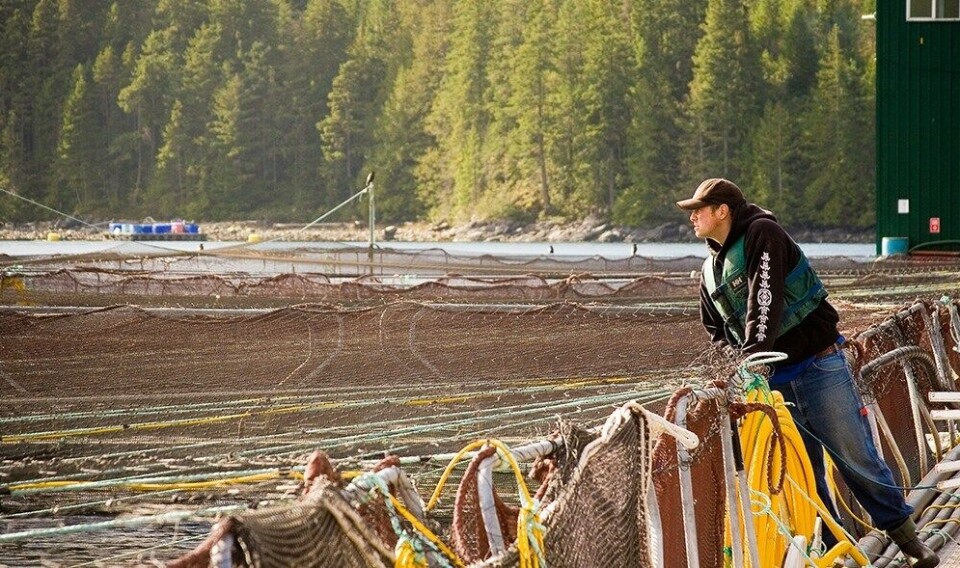
Emergencies declared in salmon farming provinces
The salmon farming provinces of New Brunswick and British Columbia, on opposite sides of Canada, have both declared a provincial state of emergency in an effort to slow down the spread of coronavirus, which causes the serious respiratory disease Covid-19.
As of March 19, Centers for Disease Control and Prevention reported that there have been 803 cases of the virus and 11 deaths in Canada.
Amid the crisis the salmon farming industry is taking precautions to limit the spread of coronavirus.

“BC salmon farmers are taking action to protect team members and do our part to limit the virus’ spread, while ensuring we can continue to provide food for British Columbians and others during this extraordinary time,” said Shawn Hall, executive director for the BC Salmon Farmers’ Association (BCSFA). He added: “We have no suspected cases at this time but would report any to health authorities.”
Protection
Company-specific actions taken by BC salmon farmers include:
- Reducing on-farm staffing to essential levels and adding heightened hygiene and sanitisation practices to existing bio-security measures taken on farms
- Farm staff are practising social distancing on sites and have been provided with hand sanitiser, gloves and other equipment
- Suspending non-essential visits to farm sites, such as tours
- Working with contractors providing essential farm services to ensure they are maintaining strong protocols
- Having office staff work from home
- Suspending work-related travel
Hall added that all staff are being reminded of proper hand-washing and coughing guidelines issued by health authorities.
“Any team member who is showing symptoms of the illness, has come into contact with someone who has been diagnosed with coronavirus or has travelled outside Canada has been asked to let their manager know and to self-isolate themselves for at least two weeks. We are developing plans to manage any issues that may arise and are continuing to follow the advice and direction of federal and provincial health authorities.”
Certification
The Global Aquaculture Alliance (GAA) is assessing each Best Aquaculture Practices (BAP) certification on a “case by case” basis.
The GAA provides third-party audits for fish farmers. Despite the pandemic the company remains open.
“The work of the BAP certification team, program integrity team and market development team continues uninterrupted as GAA employees are equipped to work remotely,” the GAA said.
There are seven employees who travel to sites all around the world and conduct BAP audits. Those employees are contacting each of their facilities individually to confirm the audits. Tavel has been restricted to areas and borders.
Extension
“If an extension needs to be granted to a facility that facility’s certificate will remain valid through the end of the extension and continue to meet all requirements of the third-party program.”
GAA added that so far extensions have only been applied to facilities in China.
“We know that working remotely is not possible for all industry functions and GAA’s thoughts and concerns go to those who work at aquaculture facilities and to those who work in the marketplace who do not have the ability to work remotely. GAA values the support of its partners throughout the seafood value chain.”
Closed border
The Canadian and BC governments have put many restrictions in place that will help limit the spread of the virus.
“The Government of Canada is continuing to strongly urge against all non-essential international travel and is urging Canadian citizens and permanent residents travelling abroad to make arrangements to return to Canada,” said a statement posted on the Vancouver International Airport website.
Canada has closed the border to foreign nationals, including its land crossing to the United Stat. Those who have recently travelled abroad have been asked to self-isolate for 14 days.
Air Canada will be laying off 5,000 employees Canada wide, and some bars and restaurants have been closed. Elementary and secondary schools have been closed until further notice. Office workers have been asked to work from home while only essential services and a small number of businesses remain open in British Columbia.























































